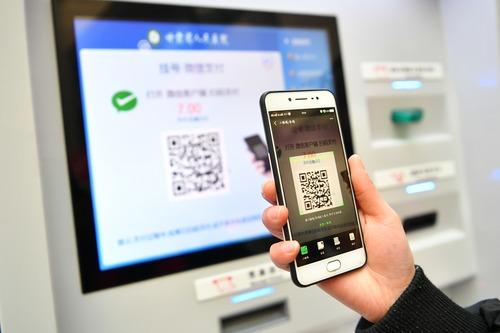BEIJING, Dec. 29 (Xinhua) -- The People's Bank of China (PBOC), the Chinese central bank, will accelerate its pace to formulate the detailed rules for implementation of the non-banking payment institutions supervision and administration regulations, reported Xinhua-run Shanghai Securities News citing Zhang Qingsong, deputy governor of PBOC on Friday.
Zhang made the remarks when attending a regular news briefing of the State Council on Thursday, saying that payment industry plays a fundamental role in serving the real economy and people's livelihood needs, and the establishment of related laws and regulations at a faster pace stands for an important move to advance the governance system and governance capacity construction.
Previously in early December, the non-banking payment institutions supervision and administration regulations were promulgated in China and classify payment business of non-banking institutions into stored value account (SVA) operation and payment transaction dealing, different from the past three types, namely online payment, bank card acquiring and prepaid card issuance and acceptance.
Wang Sheng, an official with the Payment and Settlement Department of PBOC said that the new classification of payment business of non-banking institutions is good to prevent regulatory gaps and realize the same supervision and regulation over the same business so as to boost fair competition.
In a bid to facilitate smooth transition from the past classification to the new one, the non-banking payment institutions supervision and administration regulations will formally come into effect from May 1, 2024.
Currently, a payment and clearing system featuring wide coverage, safety and high efficiency has been in place in China and the 4,000-plus commercial banks and over 180 payment institutions can well satisfy the payment demand of market entities and consumers.
With more than 95 percent of personal bank account ownership rate that is higher than the averages for mid- and high-income economies, China's mobile payment penetration rate has reached 86 percent, ranking the first in the world.
(Edited by Duan Jing with Xinhua Silk Road, duanjing@xinhua.org)




 A single purchase
A single purchase









